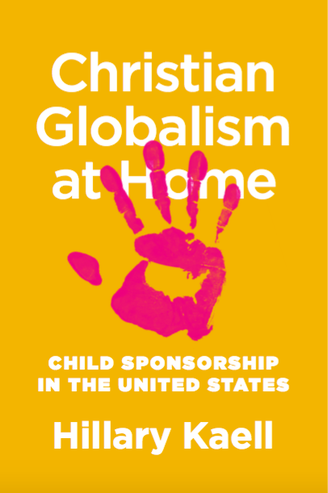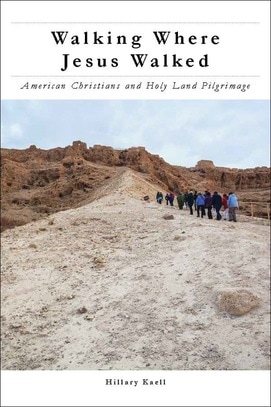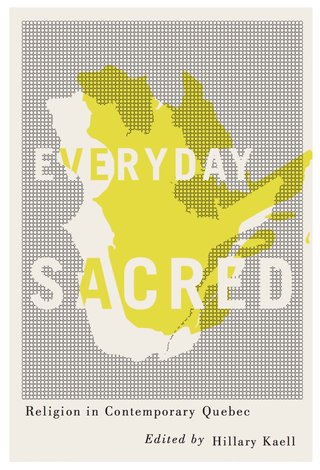books

Christian Globalism at Home
Child Sponsorship in the United States
Winner, Philip Schaff Prize for best book on Christian history
American Society of Church History, 2021
Child sponsorship emerged from nineteenth-century Protestant missions to become one of today’s most profitable private fundraising tools in organizations including World Vision, Compassion International, and ChildFund. Christian Globalism at Home investigates two centuries of sponsorship and its related practices in American living rooms, churches, and shopping malls, revealing the myriad ways that Christians who don’t travel outside of the United States cultivate global sensibilities.
The book traces the movement of money, letters, and images, along with a wide array of sponsorship’s lesser-known embodied and aesthetic techniques, such as playacting, hymn singing, eating, and fasting. It shows how, through this process, U.S. Christians attempt to hone globalism of a particular sort by oscillating between the sensory experiences of a God’s eye view and the intimacy of human relatedness. These global aspirations are buoyed by grand hopes and subject to intractable limitations, since they so often rely on the inequities they claim to redress.
Based on extensive interviews, archival research, and fieldwork, Christian Globalism at Home explores how U.S. Christians imagine and experience the world without ever leaving home.
Find it on Amazon or at Princeton University Press.
Thinking of teaching Christian Globalism at Home? I've created a quick guide to help! Read more here.
Walking Where Jesus Walked
American Christians and Holy Land Pilgrimage
American Christians and Holy Land Pilgrimage

Since the 1950s, millions of Christians have traveled to the Holy Land to visit the places where Jesus lived and died.
Walking Where Jesus Walked is the first in-depth study of the cultural and religious significance of US Holy Land travel after 1948. It analyzes how the growth of pilgrimage relates to changes in American Christian theology and culture over the last sixty years, including shifts in Jewish-Christian relations, the growth of small group spirituality, and the development of a Christian leisure industry.
Based on five years of research with pilgrims, Walking Where Jesus Walked also delves deeply into personal experiences before, during, and after the trip. It focuses on the hybrid nature of a trip that is both ordinary—tied to pilgrims' everyday role as 'ritual specialists'—and extraordinary, since they travel far away from home, often for the first time. Such experiences illuminate key tensions in contemporary US Christianity between material evidence and transcendent divinity, commoditization and religious authority, domestic relationships and global travel.
The result sheds light on how Christian pilgrims, especially women, make sense of their experience in Israel-Palestine, offering an important complement to top-down approaches in studies of Christian Zionism and foreign policy.
Find it on Amazon or at New York University Press // Listen to the podcast on Marginalia // Read about it on Religion in American History

Everyday Sacred
Religion in Contemporary Quebec
Over the last decade there has been ongoing public discussion about religion in Quebecois society, which flared up again following the proposed Charter of Quebec Values in 2014.
Everyday Sacred emerged during this active and sometimes tense period of debate. Each of its chapters provides a textured, localized study that is attentive to complexity—both in terms of people’s experiences of religion and more broadly with regard to conventional categories in the study of religion. Major themes across the chapters include: the dynamics of intergenerational transmission and institutionalism; the intersection of religion/secularism with claims of a ‘distinctive’ identity; the bodily and material aspects of religion; the impact of gender on community dynamics and debates in the public sphere; and the rise of a flexible religious hybridity and sociality that emphasizes new technologies.
Through these themes, contributors define religion more holistically, troubling familiar dichotomies between Catholics and the rest, “founding” and immigrant religions, “New Religious Movements” and traditional institutions. As the first English-language volume devoted to examining religion in contemporary Quebec, Everyday Sacred marks the beginning of a more sustained conversation between scholars of contemporary religion, inside and outside la belle province.
Find it on Amazon or at McGill-Queens University Press
Religion in Contemporary Quebec
Over the last decade there has been ongoing public discussion about religion in Quebecois society, which flared up again following the proposed Charter of Quebec Values in 2014.
Everyday Sacred emerged during this active and sometimes tense period of debate. Each of its chapters provides a textured, localized study that is attentive to complexity—both in terms of people’s experiences of religion and more broadly with regard to conventional categories in the study of religion. Major themes across the chapters include: the dynamics of intergenerational transmission and institutionalism; the intersection of religion/secularism with claims of a ‘distinctive’ identity; the bodily and material aspects of religion; the impact of gender on community dynamics and debates in the public sphere; and the rise of a flexible religious hybridity and sociality that emphasizes new technologies.
Through these themes, contributors define religion more holistically, troubling familiar dichotomies between Catholics and the rest, “founding” and immigrant religions, “New Religious Movements” and traditional institutions. As the first English-language volume devoted to examining religion in contemporary Quebec, Everyday Sacred marks the beginning of a more sustained conversation between scholars of contemporary religion, inside and outside la belle province.
Find it on Amazon or at McGill-Queens University Press